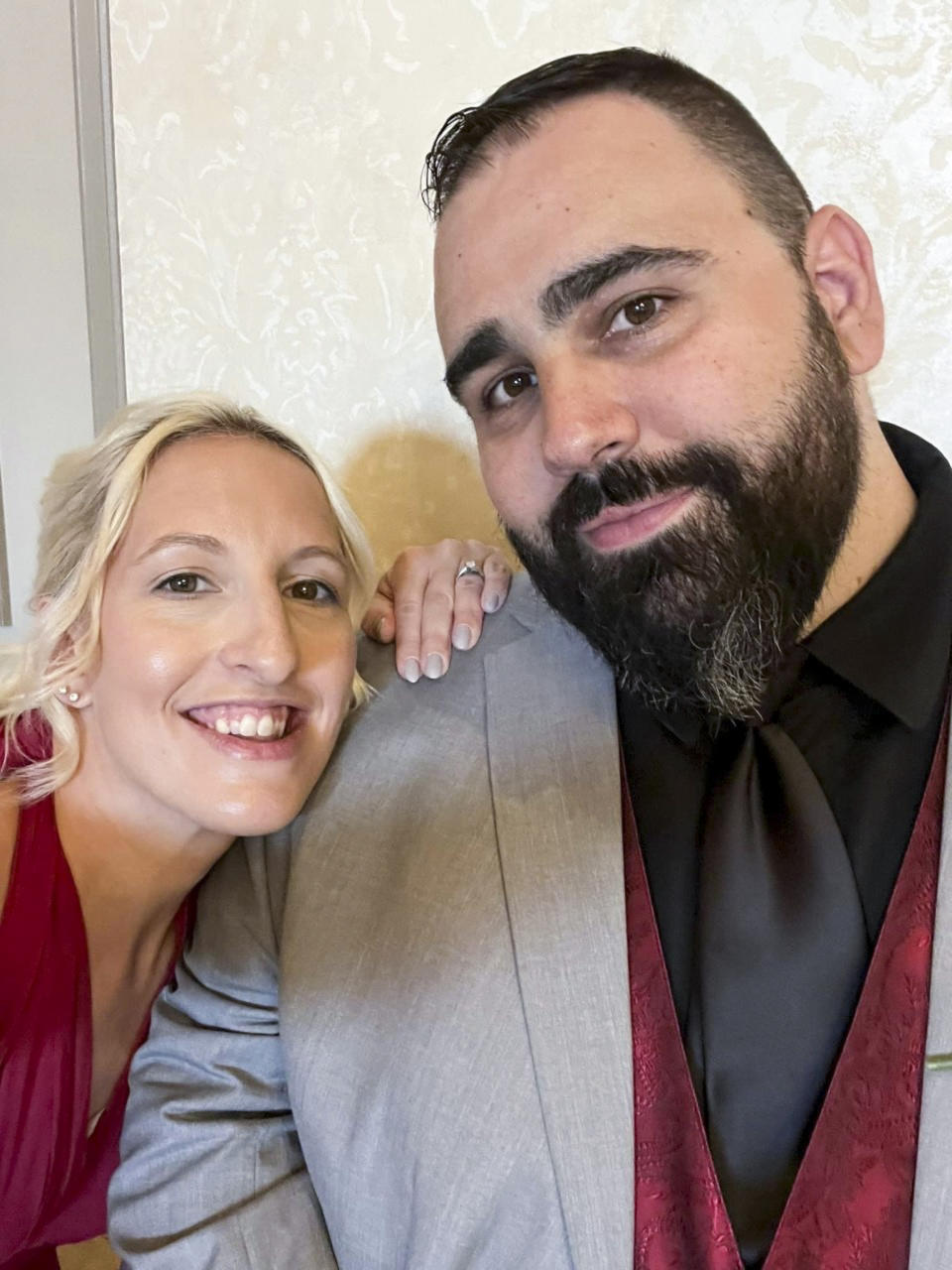Eye Floaters Symptoms: Vitrectomy Surgery Can Improve Vision
Eye floaters are a fact of life for millions of Americans, especially as they get older. But the dots, squiggly lines and tiny cobwebs floating across the field of vision can turn from minor annoyance to a life-disrupting nightmare for some people.
A swarm of floaters can impact everything from reading and driving to simply looking at a clear sky. It’s enough for some to seek surgery to remove them.
Greg Mason, 38, said he has so many floaters that he sometimes doesn’t want to open his eyes when he wakes up in the morning.
To help others understand what he sees, Mason tells them to pretend their eyeballs are snow globes filled with black threads. The snow globes get shaken every time they move their eyes, so the threads move around and block vision. “It’s driving me insane,” he wrote on social media.

Mason doesn’t like reading books anymore because all he sees are shapes floating around. They even ruin his vacation.
“Going to the beach is torture because when you’re looking out at the ocean on a bright sunny day, you see all of these distortions. You’re just spending all of your time squinting or flicking your eyes left or right trying to get them out of the way,” Mason, who lives in Hyde Park, New York, told TODAY.
“This is really affecting my life… I’ve been depressed. I’ve actually gone to a therapist about it.”
New floaters that appear suddenly can be a sign of a retinal tear or retinal detachment, according to the National Eye Institute. But Mason, who began to notice the problem six years ago, said his eye doctors can’t find anything wrong with his eyes or his health, and have no explanation for his influx of floaters.
“No one seems to take it seriously,” he said.
There are others like him sharing their stories and frustrations online. Reddit’s forum for people suffering from eye floaters has 5,000 members.
Even former TODAY anchor Katie Couric has complained that a floater in her right eye looks like a fly and is driving her “crazy.”
Anyone out there have floaters? I feel like I have a fly in my right eye and it’s driving me crazy! 🪰
— Katie Couric (@katiecouric) July 12, 2022
Phillip Schofield, a British TV host, recently revealed he underwent a vitrectomy — surgery to remove eye floaters — to find relief.
“People who don’t have terrible floaters won’t understand what they do to your head,” Schofield wrote on Instagram. “For the first time in many years, right now, I’m looking at a clear blue sky, it is mood/mind and life changing for me.”
Before his surgery, he described his vision “like a filthy bathroom window drifting across my eyes.”
Mason is planning to get a similar surgery this fall. How does it work? TODAY asked Dr. Sophie Bakri, chair of ophthalmology at the Mayo Clinic in Rochester, Minnesota.
What are eye floaters?
The gel-like fluid that fills the eye, called the vitreous, is made of hyaluronic acid and collagen. It degenerates as people age, causing tiny strands to stick together and cast shadows on the retina, which people see as floaters, according to the National Eye Institute. They move as the eyes move.
“Eye floaters are extremely common,” Bakri said, noting they affect about 60% of people over the age of 60.
Sometimes, the vitreous actually pulls off or detaches from the retina, which can make the gel move around a lot more, leading patients to experience floaters, she added.
Conditions that predispose people to eye floaters at a younger age include being nearsighted and having diabetes.
How bothersome can eye floaters get?
Typically, people learn to ignore them, but a small subset of patients has very bothersome or persistent eye floaters, Bakri said.
“It could be the size of the floaters, it could be somebody has a big floater that is more central,” she noted. “It may be related to people’s personality or people’s occupations. They may have a higher need for more precise vision.”
Patients bothered to the extreme by floaters are very uncommon, Bakri said.
What is the treatment for eye floaters?
Bakri takes a conservative approach when it comes to treatment. Her main advice is to learn to ignore the floaters, but if patients are adamant the problem is absolutely intolerable, she discusses the risks and benefits of removing them.
The most definitive option is vitrectomy surgery, she said. The patient receives local anesthesia to numb the eye and doctors then make a small incision to remove all of the vitreous gel and replace it with a balanced salt solution.
“We only do a couple of these a year, because they’re so rare,” Bakri said, adding younger people wouldn’t be good candidates for the procedure. “I would be very reluctant in a 20-year-old because the gel is so firmly stuck to the retina, I’d have to strip it off, and that in itself could cause issues.”
The surgery lasts about an hour and will permanently get rid of all of the floaters, she noted.
But there is a 3% risk for retinal detachment, she noted, and the risk for cataracts is about 12% in the first year alone, increasing with time.
Some ophthalmologists offer laser vitreolysis, which aims to disrupt and evaporate floaters. But about two-thirds of patients may need another laser procedure after that and some will go on to require a vitrectomy anyways, Bakri noted.
Bottom line:
“We do have a procedure that will fix (eye floaters), but we want to be sure that they’re truly bothersome and that the patient understands the risks and benefits,” Bakri said.
As for Mason, he can't wait to get the surgery. "Looking at a blue sky, looking at a room with white walls, forget it, it’s just a mess," he noted. "It is debilitating."

